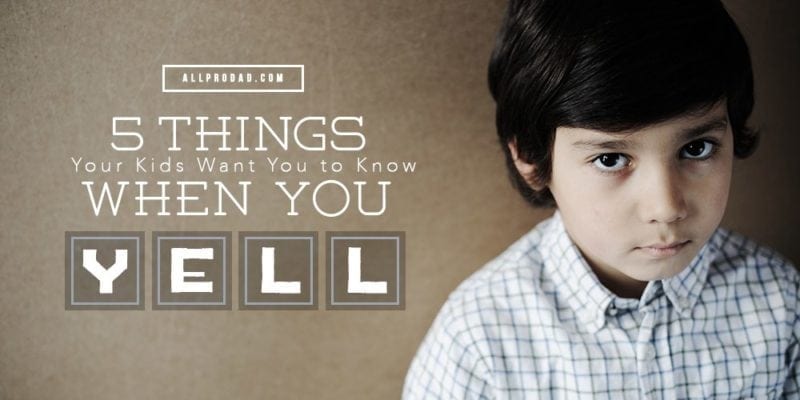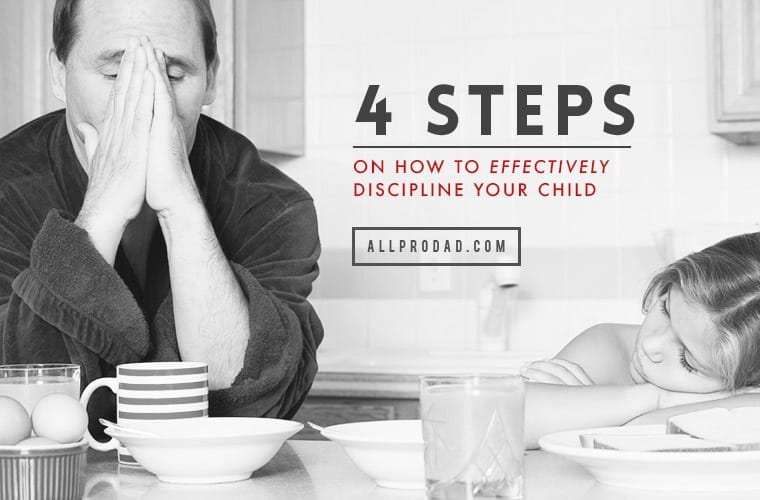From the time our kids learn to talk, our relationship with them as parents will include thousands of questions, special requests, and arguments. Over time, it’s tempting to respond to them on verbal automatic reply. But as I’ve blogged about before, we need to reject the temptation to talk to them with automatic replies. Here are 10 more automatic replies to avoid with our kids:
1. “What have I told you before about that?”
It’s a fair question, but when we say this on autopilot, we’re not usually using an instructive or patient tone. We often utter this in exasperation. Our kids simply hear “you dummy, don’t you remember or hear anything I ever say?”
2. “Wait until Dad/Mom gets home.”
Sometimes we do need to get input and backup from the other parent, but oftentimes this phrase is used to put off dealing with an issue in a timely way. It can also regularly set up your spouse as the bad cop, and be the first thing you make them have to deal with when they come through the door. Be cautious and use this sparingly.
3. “I don’t know.”
It’s okay, even admirable, to admit that “I don’t know” when our kids ask a question that we honestly don’t know the answer to like “how far away are we from the sun?” But when they make requests of us, and, in our weariness, we just don’t want to deal with it and we say “I don’t know” then it becomes more like the often overused “we’ll see” or “maybe.” This reply is usually buying time as a parent and not very helpful to the child. Repeated use of this reply can also diminish a child’s confidence in us as parents if all they ever seem to hear is “I don’t know.” They may question if they can trust our counsel as they get older.
4. “Yeah, sure,” or “Fine” or “Ok, go ahead.”
Sometimes we knee-jerk to a quick “yes” because it’s easy and we’re tired. While some parents battle the “no” automatic reply, this automatic “yes” can be just as harmful. Saying “yes” can lead to a very permissive environment that can hurt your child as much as a constant “no” vibe can stifle them. This is the “Mindless Yes”, or the “Easy Yes.” We need to avoid the path of least resistance when realizing that we need to say “no.” Sometimes being a parent is more important than being their friend and favorite person in the world.
5. “Go work things out yourselves.”
Sometimes, especially with arguing siblings, it’s tempting to push them to go work things out together and report back later. That can be good, in the right situation and sparingly. Older kids should be able to figure things out. But as a friend of mine once realized when he gave this kneejerk reply to his two young daughters, it can actually make the situation much worse. His girls’ argument became a fight for reasons they couldn’t even recall because they were really too young to have enough wisdom, understanding, and relational skills to get things right. His choice was for convenience, not self-sufficiency, and he wound up having to get involved anyway when things got out of hand. Repeated use of this communicates that we can’t be bothered with the details and aren’t interested in helping them learn to mediate their disputes.
6. “If you don’t stop crying, I’ll ______.”
If we habitually threaten consequences for when our kids don’t do what we want them to do then the consequences lose their power, especially if we don’t consistently apply the consequences. This reply is not always a bad strategy, because sometimes we need them to understand what will happen if they don’t adjust their attitude or behavior. But if it’s the same idle threat over and over again, and we don’t follow through, it’s an empty promise that diminishes our authority and influence.
7. “I don’t care.”
What we often mean when we say this is “that’s not relevant” or “why are you even asking me that question? You can figure it out.” But what our kids hear from us is “I don’t care about you or your perspective or your thoughts or your ideas.” We need to be more specific than just saying “I don’t care” so they don’t conclude that we don’t care about them.
8. “Don’t you understand?” Or “Don’t you get it?”
Often times, this is a rhetorical question with an obvious answer. No, our kids often don’t understand what we’re saying or explaining. They don’t have our experiences, our history, or our hard-knock lessons. Asking them this all the time makes them wonder if they’re stupid, or if you believe they’re stupid. How we say this can be a problem, too. Do we say it with anger or an edge? If we really need to ask this question, we need to use a calm, non-sarcastic, non-pandering and tender tone of voice or inflection. And we should ask it in a positive way instead of a negative way: “Do you understand?” is much better than “do you NOT understand?”
9. “Act your age.”
We fall back on this reaction often in the heat of the moment. It may be true that our kids are throwing a fit and acting below their ages. But it also is a cutting commentary, too. This reply is more insult than mere command or commentary on their behavior. There are better ways to communicate this, like “I’m confident that at your age you can come up with a better way to handle this situation.”
10. “Whatever.”
This is a very dismissive knee-jerk reaction. If our kids said it to us, let’s face it, we’d be frustrated and offended. This phrase communicates “I’m blowing you off.” For example, a parent asks why they hadn’t yet taken the trash out, and they reply “I was going to take out the trash in a little bit!” If the reply is “Whatever,” the message is “I don’t believe you, I don’t trust you, and I don’t really care what you say.”












Huddle up with your kids and ask, “When was the last time you felt really listened to?”